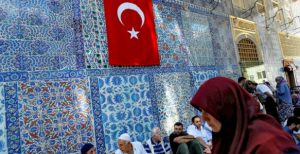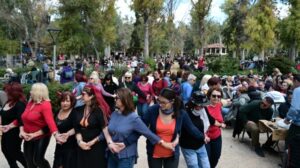Turkish President, Recep Tayyip Erdogan, makes no secret of his desire to raise what he calls a “pious generation”. Since his Justice and Development (AKP) party became Turkey’s dominant force in 2002, elevating Islam’s public role in this constitutionally secular republic has been more than a slogan; it has found expression in many government policies.
During his sixteen years in power, Mr Erdogan has presided over the construction of thousands of new mosques and Islamic vocational schools, known as imam hatips. The number of students at such institutions has increased more than fivefold since 2012, to an estimated 1.4m in a country of about 80m. The budget of the religious directorate, the agency responsible for the conduct of sermons in the country’s mosques, has grown by leaps and bounds, overtaking several ministries in the process. The government has quietly cultivated relations with a number of Islamic movements and brotherhoods, helping them accumulate considerable power and wealth.
But curiously these policies do not seem to have had the desired result. Turks do not appear to be any more devout than they were a decade ago, scores of Islamic schools remain empty, and the brotherhoods seem increasingly out of step with a rapidly changing society.
According to a study by KONDA, a local polling company, between 2008 and 2018 the share of Turks who define themselves as religious dipped from 55% to 51%. The number of women who wear the Islamic headscarf barely budged, from 52% a decade ago to 53%, and the share of those who fast regularly decreased from 77% to 65%. Meanwhile, the number of atheists has risen from 1% to 3%.
In spite of the money the government has poured into imam hatip schools, which combine a standard education with hours of study of Islam, supply continues to outstrip demand. At the high-school level, imam hatips filled only 52% of available places last year, compared with 95% for regular schools. Such schools are also much less successful than others. Imam hatip students are at least twice as unlikely to enrol in a university as students at regular or private schools.
Read more HERE
Ask me anything
Explore related questions





